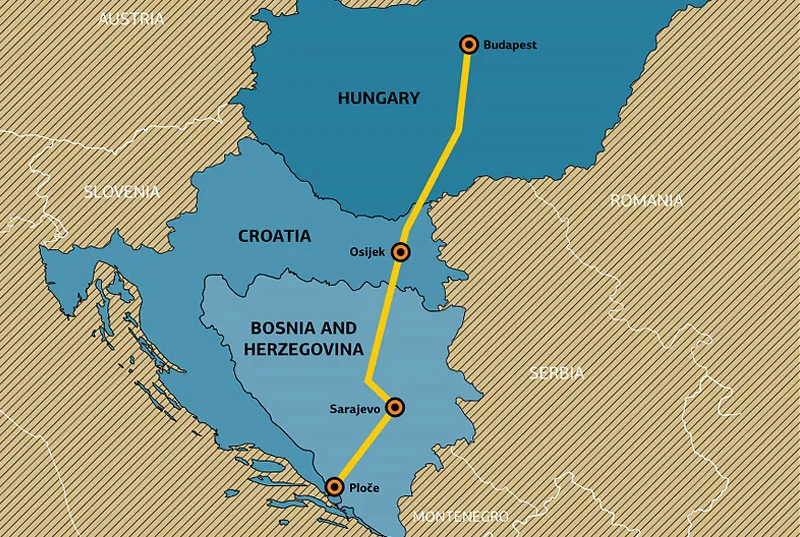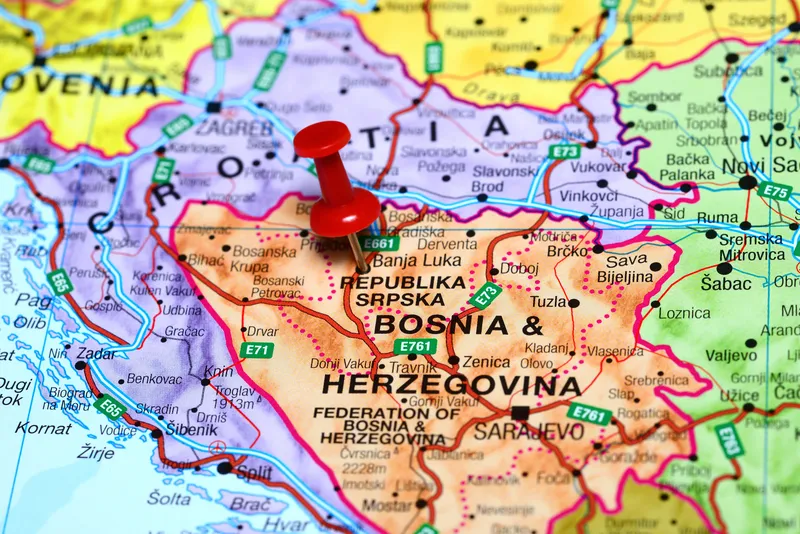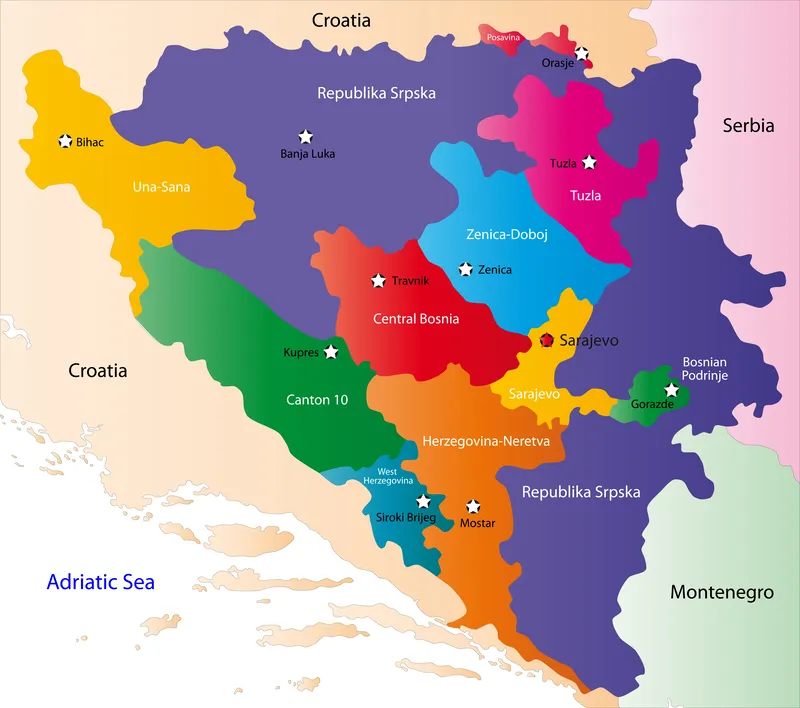
The EBRD will provide a €110 million loan to Bosnia and Herzegovina for construction of the Mostar North-Mostar South section of pan-European Corridor 5c.
The project will include the construction of an interchange and a 15 km dual-carriage motorway section, the EBRD – European Bank for Reconstruction and Development said in a press release.
As well, the European Union will provide a €150 million grant through the Western Balkans Investment Framework (WBIF) and up to €150 million will be secured from local commercial banks for the project.
The WBIF is a joint initiative of the European Union, financial institutions, bilateral donors and the governments of the western Balkans. It provides financing and technical assistance to strategic investments in the energy , environment, social, transport and digital infrastructure sectors. It also supports private sector development initiatives.
The 700km Corridor 5c starts in the Hungarian capital Budapest, runs via northern Osijek in Croatia, through Bosnia and Herzegovina via Doboj, Zenica, Sarajevo and Mostar to end in the Croatian Adriatric port of Ploče.
According to the WBIF, Corridor 5c is the backbone of Bosnia’s connectivity – it has around 340km of the route – and is strategically vital for its economic development, making it a top priority for the Western Balkans regional development.
Bosnia’s Corridor 5c section is the first major motorway and the largest ever infrastructure project in the country´s history. More than 68km of motorway, including one cross-border bridge, have been supported by EU grants, blended with loans by European Bank for Reconstruction and Development as well as the European Investment Bank (EIB).
When work is done, the WBIF says that a typical journey from Sarajevo to the Adriatic Sea that now takes three and a half hours will be reduced to two hours.
Meanwhile, Bosnian media report that the 5.5km Poprikuše-Nemila section of 5c in Bosnia, originally scheduled for completion in May 2024, has experienced a delay and a significant cost increase. The project was initially contracted for €208 million.
However, the Turkish contractor, Cengiz Insaat, has been granted a further €27.2 million and an extension of 182 days due to unforeseen geophysical conditions encountered during construction.







